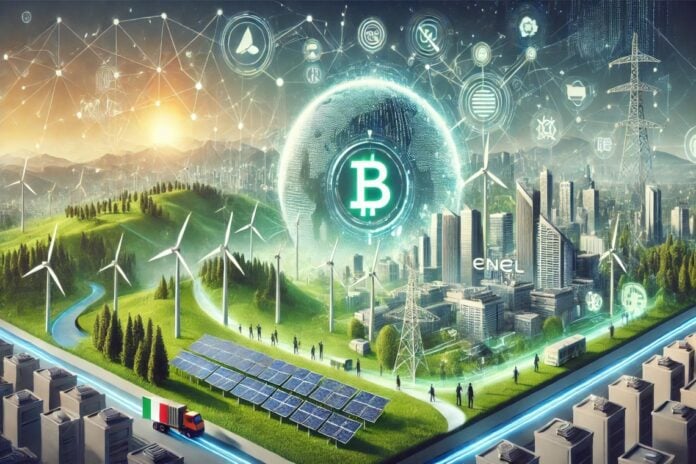Enel, one of the world leaders in the energy sector and a pioneer in renewable energies, is introducing an innovative technological solution in Italy: the Algorand blockchain.
This agreement promises to transform the way consumers interact with clean energy, encouraging direct citizen participation in the energy transition and paving a path towards a more sustainable future.
Let’s see all the details in this article.
Summary
How the Algorand blockchain works in Enel’s project
The growing focus on renewable energy drives companies to seek new solutions to make the consumption of clean energy more accessible and interactive.
Enel, through a project based on the Algorand blockchain, positions itself at the forefront in this sector. The company is developing a platform that will allow Italians to acquire a virtual share in solar energy plants.
Questo modello di proprietà frazionata consente agli utenti di partecipare direttamente alla produzione di energia.
Individuals can own a “digital share” of a photovoltaic plant, thus supporting the expansion of renewable energy without the need to install solar panels on their own roof.
The choice of Algorand is not random. This blockchain is known for its high performance, scalability, and, above all, for its eco-friendly approach.
Algorand uses a pure Proof-of-Stake consensus mechanism, avoiding the disproportionate energy consumption typical of mining in other blockchains. Its technological structure is perfectly in line with Enel’s mission: promoting environmental sustainability.
The platform based on Algorand will allow users to track their energy share, ensuring transparency at every stage. Each block of the chain will contain immutable information, such as the amount of energy produced, distributed, and consumed.
This approach not only increases the confidence of the participants, but also allows for more efficient energy management on a large scale.
The most innovative element of the project lies in the concept of fractional ownership of solar plants. Thanks to the blockchain, citizens can purchase a percentage of an existing plant.
In exchange, they receive a proportional return in the form of generated energy or possibly economic incentives derived from the sale of excess electricity to the grid.
This model eliminates many of the traditional barriers that hinder the adoption of renewables, such as high initial costs, lack of domestic space for panels, or technical difficulties related to installation.
Why Algorand and not other blockchains?
The choice of Algorand by Enel was not driven solely by energy sustainability. This blockchain also guarantees speed in transactions, reduced costs, and high cryptographic security.
Furthermore, Algorand is capable of handling thousands of transactions per second without compromising efficiency, an essential aspect for large-scale projects like that of Enel.
In a sector where trust and transparency are fundamental, Algorand represents a technological solution of the first degree. Its features ensure that every operation is verifiable, immutable, and compliant with international security standards.
Furthermore, Enel’s project is not limited to incentivizing renewable energies. It indeed aims to radically change the relationship between citizens and energy production.
The possibility of becoming “co-owners” of a solar plant represents a paradigm shift: we are no longer mere consumers, but active participants in the creation of a local and global energy system.
This model has significant implications. On one hand, it allows communities to work together to finance large solar projects. On the other hand, it educates and raises awareness among citizens about the importance of energy choices.
L’adozione potrebbe anche avere un impatto positivo sulla percezione della blockchain, spesso vista come un sistema complesso o scollegato dai bisogni reali.
Implications for the blockchain and energy sector
The Enel project based on Algorand represents a concrete example of how blockchain technologies can find real and useful applications beyond criptovalute.
The integration of renewable energies with advanced digital infrastructures is a trend destined to grow.
The collaboration between traditional companies and technology platforms demonstrates that blockchain is not just a trend, but a potent tool for solving real problems.
At a global level, this initiative could become a replicable model in other countries. Italy, thanks to the leadership of Enel, positions itself as a positive example of innovation in the energy sector.
If the project is successful, it could encourage other nations and companies to follow suit, accelerating the transition towards a world powered exclusively by renewable energy.

